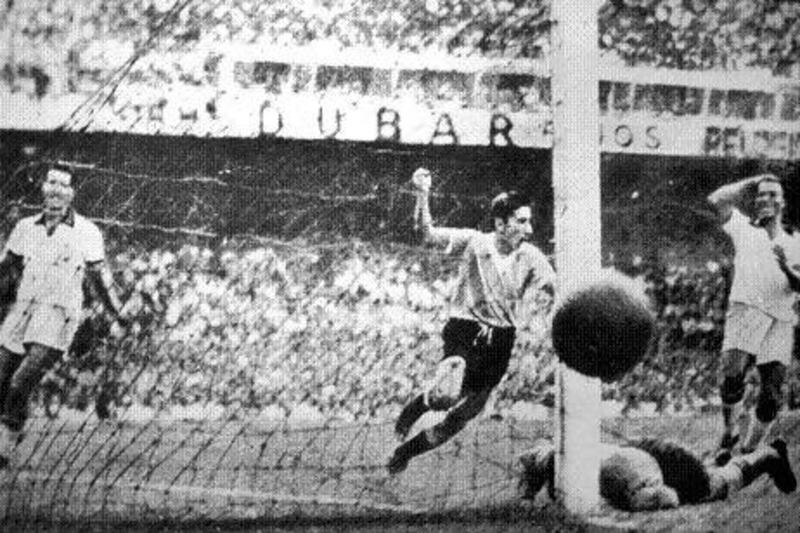For all the glory associated with their famous yellow shirts, Brazil can never shake the sense of unease that descends whenever they find themselves confronted by Uruguay.
Wednesday night's Confederations Cup semi-final at Belo Horizonte will be the 71st match between the South American neighbours, and for Brazilians it will dredge up a 63-year-old nightmare that haunts the Selecao to this day.
The 1950 World Cup in Brazil was intended to crown the hosts' emergence as the world's best national team, but instead it witnessed their most traumatising defeat, immortalised as the "Maracanazo" (Maracana Blow).
A side led by all-action inside-forward Zizinho went into the decisive match at Rio de Janeiro's newly built Maracana stadium needing only a draw to win the tournament for the first time.
On July 16, the day of the game, Rio newspaper O Mundo carried the headline "THESE ARE THE WORLD CHAMPIONS!" alongside a picture of the team, and an estimated 200,000 fans streamed into the giant concrete arena in anticipation of Brazil's coronation.
Opponents Uruguay, narrow victors over Sweden in their previous game, were offered up as the sacrificial victims and they seemed destined to fulfil that role when Friaca put Brazil ahead early in the second half.
Juan Alberto Schiaffino equalised, but Brazil remained on course for the trophy until Uruguay winger Alcides Ghiggia surprised goalkeeper Barbosa with a low shot in the 79th minute that stunned the giant stadium.
"Only three people have ever silenced 200,000 people at the Maracana with a single gesture," Ghiggia once said. "Frank Sinatra, Pope John Paul II and I."
Uruguay, not Brazil, were the world champions, and the host nation sank into mourning. Barbosa became an instant scapegoat and played for his country again only once. Reports of suicides abounded.
"Everywhere has its irremediable national catastrophe, something like a Hiroshima," said Nelson Rodrigues, the Brazilian playwright, journalist and novelist.
"Our catastrophe, our Hiroshima, was the defeat by Uruguay in 1950."
In response, a competition was launched by Rio newspaper Correio da Manha to redesign the uninspiring white strip that Brazil's players had worn in the final.
The winning entry, submitted by 19-year-old illustrator Aldyr Garcia Schlee, combined the yellow, green and blue of the Brazilian flag and is worn to this day, but even there, Uruguay played a part.
Schlee was born in the border town of Jaguaro and as he told British author Alex Bellos in the 2002 book Futebol: The Brazilian Way of Life, he grew up supporting the national team from the blue side of the frontier.
Uruguay, the country, spent the first three centuries of its existence being tugged back and forth between the Spanish and Portuguese empires and was only granted independence from Brazil in 1828.
It has been wreaking vengeance in the form of guerrilla raids on the football pitch ever since.
Brazil's heaviest defeat, a 6-0 thrashing in September, 1920, came at Uruguay's hands.
La Celeste have twice beaten their neighbours in the final of the Copa America.
A Brazil team featuring the great Socrates fell to Uruguay in 1983, and the 1995 final saw a Brazil side containing five members of the team that had overcome Italy in the previous year's World Cup final beaten 5-3 on penalties in Montevideo.
Brazil claimed symbolic revenge for the Maracanazo by defeating Uruguay in the 1989 Copa America final at the Maracana, Romario heading in the only goal, but the memory of the 1950 match refuses to fade.
In 2014, Brazilian players will take to the field at a Brazilian World Cup for the first time since Zizinho and his disconsolate teammates left the pitch at the Maracana over six decades previously.
So although Brazil have since amassed five World Cups and will start as strong favourites against Uruguay tonight, victory would represent only partial consolation.
Follow us
[ @SprtNationalUAE ]





